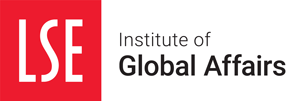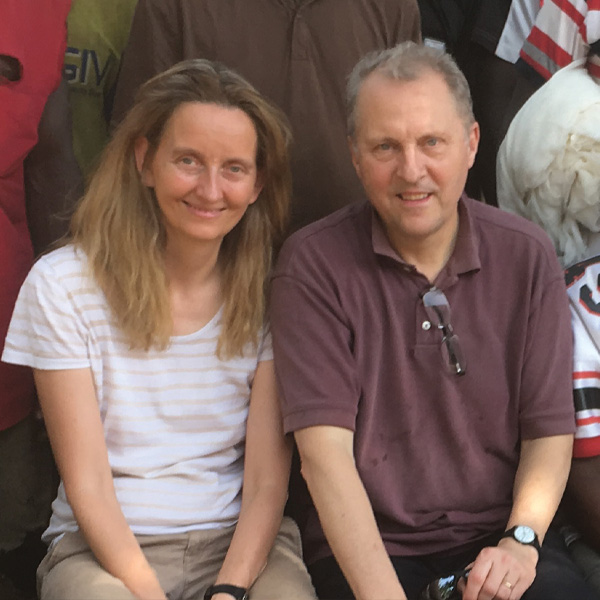GLOBAL POLICY LAB


Ebola responses highlight chronic problems with public authorities and multiple inequalities in health assessments and responses. Our team’s research has explored the implications (http://www.lse.ac.uk/africa/centre-for-public-authority-and-international-development/Public-authority-and-Ebola). With respect to the 2014/15 epidemic in West Africa, the problems were extreme, and apparent to anyone who cared to notice. A basic statistic underlines the point: the estimated amount spent on Ebola was 150% more than the annual government budgets of the three most affected countries combined. This was primarily because West Africa is situated relatively close to Europe, and the affected populations have close connections with both Europe and the United States. There were serious concerns about infection spreading to rich countries. Containment was the priority, and protection of international staff shaped events on the ground. Indeed, unprecedented steps were taken. Unlike previous Ebola epidemics, the West African epidemic was categorised by the UN Security Council as ‘a threat to international peace and security’.
In Sierra Leone, an expensive British operation involved deploying hundreds of military medics and logistical personnel. Many were based offshore on HMS Argos, and others in protected locations near the site of a treatment centre they helped construct and run in Kerrytown, at the edge of Freetown. The centre took so long to complete that the worst of the epidemic was over by the time it was effective. Noteworthy, too, is that care was initially provided for infected expatriates in a separate space to Sierra Leonean citizens. However, the numbers coming forward were small. Rumours abounded, including stories about soldiers collecting body parts. The situation was not helped by the fact that infected expatriates were, in practice, evacuated to their home countries.
Upcountry, Médecins Sans Frontiers (MSF) and other NGOs were on the front line, working with national colleagues. Speaking to some of those involved, it is clear that the situation in mid 2014 was harrowing, and involved making troubling choices. It was decided that it was too dangerous to attempt intravenous rehydration of infected people arriving in crowded ambulances at Bo and other large treatment centres. Instead, those sent there were triaged and the infected segregated and quarantined – such that relatives could not access them to administer intensive individual care. Most patients died quickly, and were then buried in ways that set aside local customs, thereby preventing infection from corpses.
Independent assessments of the Ebola programmes have been highly critical. Evaluations of the World Health Organisation are scathing, and MSF, which was instrumental in calling for military deployment, has openly expressed doubts that it was useful. Overall, there is a prevalent view that neither soldiers, nor medics were particularly influential in containing the epidemic – even if they were important in finding and treating the last recorded cases. So, what worked? The answer is far from clear. Acquired immunity may have been a factor, and probably also the behavioural responses of the population. The latter is often misleadingly referred to as ‘community mobilization’. It suggests that social changes are externally directed, and begs the question of what the word ‘community’ implies. In Sierra Leone, like everywhere else, communities are far from homogeneous or cohesive – and they have contested hierarchies. Here, too, inequalities are a crucial factor in assessing events, in so far as there is evidence.

Photo: Melissa Parker
It has been argued that paramount chiefs were key. These are a legacy of British indirect colonial rule, and were rehabilitated with support from the UK government after Sierra Leone’s civil war. They took responsibility, it is maintained, for quarantining and reporting patients. That was surely the case in some circumstances, but to equate claims made about (or by) paramount chiefs with pervasive experiences across the country is absurd. Our research shows that chiefly authority is very variable, and location specific.
In places where we have carried out fieldwork, notably Ribbi Chiefdom, there were many surprises. To begin with, far more people were diagnosed with Ebola than was officially reported. Moreover, the majority were treated by their families in secret. Everything was done to hide what was happening from the paramount chief, and information from the radio and from educated friends and relatives was used to protect those looking after patients, and to bury those that died. Intensive oral rehydration was attempted from the outset, and the majority of those with suspected Ebola survived. People are proud of how they acted towards one another, and how they resisted efforts to control them. They successfully prevented loved ones being taken away to die with strangers.
The prevalence of such procedures is unknown. Indeed, the number of people who died from Ebola in Sierra Leone can only be guessed. The 3,955 deaths officially reported are based on data from the treatment centres, which people tried to avoid, and often did so successfully. Ebola control measures required families to make decisions that potentially violated moral norms. For many, that was not a choice at all. Social inequalities do not mean that hierarchies are unquestioned or resisted. On the contrary, they are likely to encourage the rejection of public authorities associated with political office in favour of public authorities grounded in mutual social relations. When it comes to matters of life and death, it is predictable that systems associated with maintaining social stratification are subverted.
Given the dreadful symptoms of Ebola, the lack of trust towards outsiders, histories of exploitation, and experiences of oppression, conspiracy theories are likely ways of trying to make sense of things. Those who most compellingly interpret events are unlikely to be government agents or aid workers, unless they engage very seriously with understanding local dynamics, and work sensitively in that context. It is a lesson that has not been learned, as evidenced by the aggressive, exclusionary, poorly communicated and socially divisive responses being applied to the ongoing epidemic in eastern Democratic Republic of Congo. Efforts at control, treatment and vaccination continue to make every effort to co-opt, exploit and reinforce existing hierarchies. Political realities of the region make it a risky strategy.
Tim Allen is professor of Anthropology in Development, Department of International Development, London School of Economics. He is Director of the Economic and Social Research Council Centre for Public Authority in International Development, and is the inaugural Director of the Firoz Lalji Centre for Africa. He has carried out extensive ethnographic research various parts of Africa since the 1980s. This has mostly focused on health, healing, war, security, and justice. His books include the wildly use textbook, Poverty and Development, and a much-cited study of the International Criminal Court and the Lord’s Resistance Army.
Melissa Parker is a professor of Medical Anthropology at the London School of Hygiene & Tropical Medicine. Since the 1980s, she has carried out research in Sudan, Uganda, Tanzania, Sierra Leone and the United Kingdom on a wide range of global health issues. In 2014, she established the Ebola Response Anthropology Platform with colleagues from Sierra Leone and the UK, which was awarded the UK’s Economic and Social Research Council ‘Celebrating Impact Prize’ for ‘Outstanding International Impact’.